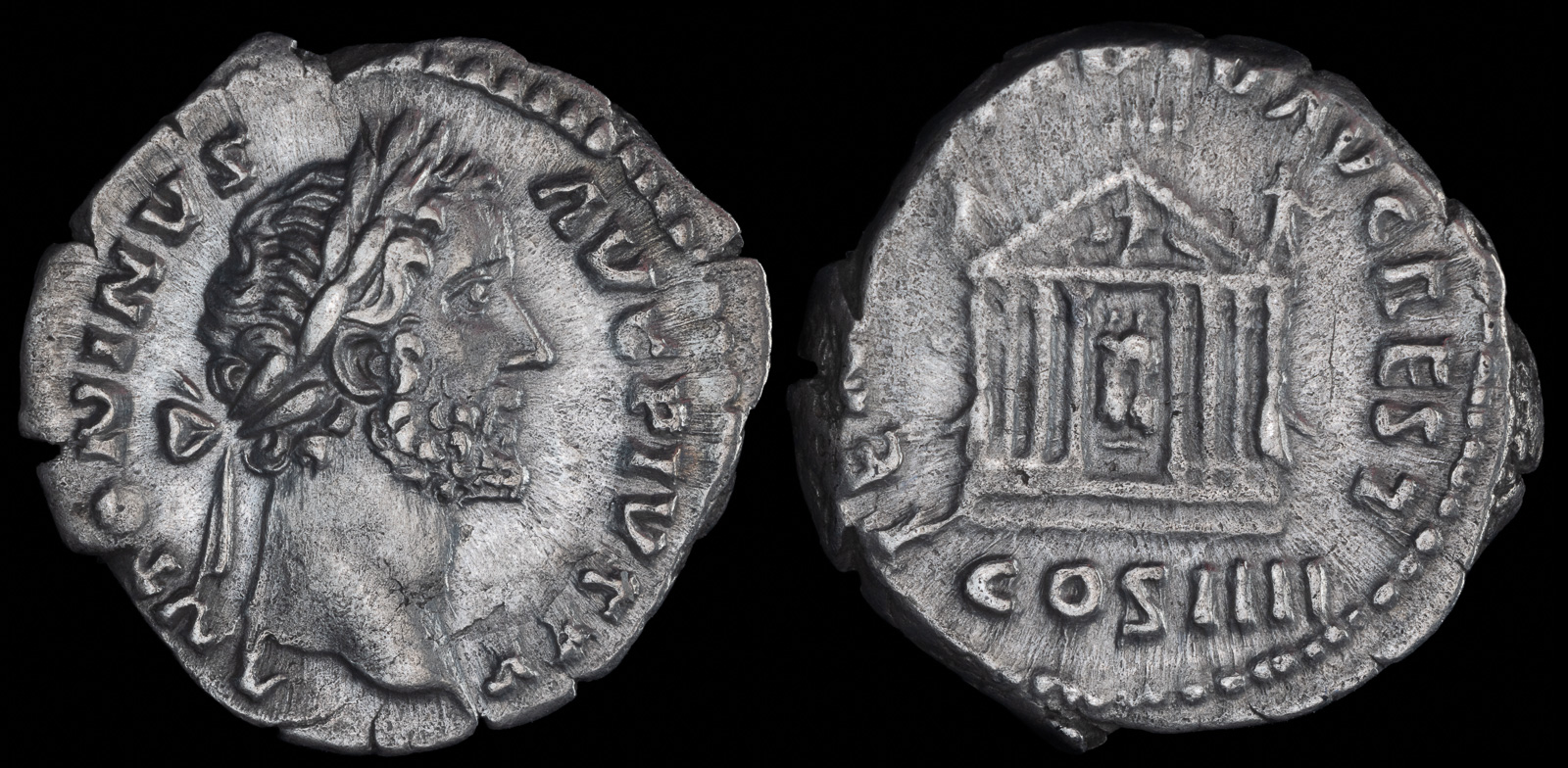Victory
View All Tags
Victoria was honored not only by the victorious general returning from battle but also by the broader Roman populace, especially after significant military triumphs. The triumph, the grand victory parade celebrating the success of a Roman general, was one of the most important public events, and it often included displays of captured spoils, slaves, and prisoners, all parading under the watchful gaze of Victoria. During such events, a special prayer would be offered to the goddess to thank her for ensuring Roman victory, and a statue of Victoria was prominently featured in the celebrations. The triumph itself, with its lavish displays, underscored the Roman emphasis on divine favor as integral to their military achievements.
The goddess Victoria was not only associated with battlefield victories but also with the more abstract notion of national success. She was often invoked in moments of political importance, such as the assumption of power by emperors or the establishment of new Roman provinces. Emperors frequently had her depicted on their coins and monuments to remind the people that their reign was divinely sanctioned and marked by success, reinforcing the idea that Rome’s victories were the direct result of divine favor.
Victoria had a temple dedicated to her in the Roman Forum, where she was venerated as a protector of Rome’s military power and the personification of its global dominance.

Antoninus Pius 159 CE
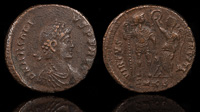
Arcadius 395-401 CE

Carus 282-283 CE

Constans 337-350 CE
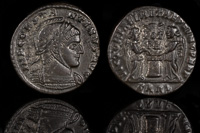
Constantine the Great 319 CE

Constantius Chlorus 293-305 CE

Decentius 351-353 CE

Diocletian 284-305 CE

Diocletian 284-305 CE
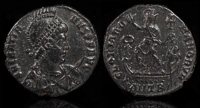
Gratian 379 CE

Koinon of Macedon 231-235 CE

Licinius II 321-324 CE

Lysanias 40-36 BCE

Magnus Maximus 383-388 CE
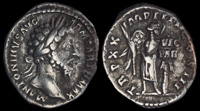
Marcus Aurelius 166 CE
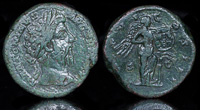
Marcus Aurelius 172 CE

Maximianus 285-295 CE

Maximianus Herculius 286-305 CE
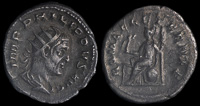
Philip I 247-249 CE

Saloninus 258-260 CE

Valentinian I 364-375 CE
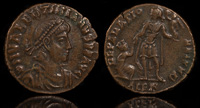
Valentinian II 378-383 BCE
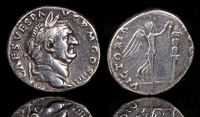
Vespasian 69-79 CE
